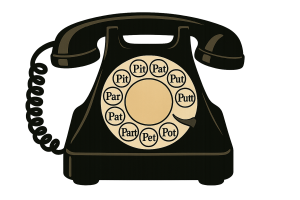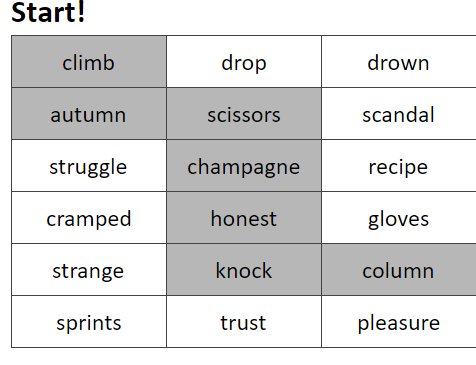English Pronunciation Practice – Fun ESL Activities and Games

This page offers a collection of interactive and effective English pronunciation practice activities for the classroom. Designed for ESL learners, these games and exercises help students improve clarity, reduce misunderstandings, and build confidence in speaking English.
Our aim isn’t to eliminate students’ accents—far from it. Instead, these pronunciation exercises focus on helping learners speak clearly and be easily understood, regardless of their background. Whether it’s mastering vowel and consonant sounds or identifying correct word stress, these activities make pronunciation practice engaging and purposeful.
Pronunciation Games for Vowel & Consonant Sounds
🔡 Pit Pat Putt – Vowel Sound Listening & Speaking Game

This pronunciation activity develops both listening discrimination and accurate production of English vowel sounds. It’s ideal for highlighting minimal pair contrasts that often cause confusion for learners.
How It Works
- Choose 10 One-Syllable Words
Select words that differ only in their vowel sounds—especially those your students struggle with. Example sets:- Pit Pat Put Putt Port Pert Part Pet Pot Pete
- Cut Court Cute Cat Kit Cot Cart Coat Kite Coot Kurt
- But Bet Bat Bit Bought Bait Beat Bite Bot Boat But Bert
- Assign Each Word to a Digit (0–9)
Write the numbers 0–9 across the board, and place one word under each number.0 – Bet 1 – Bat 2 – But 3 – Bite 4 – Beat 5 – Bot 6 – Boat 7 – Bit 8 – Bait 9 – Bert - Drill the Words Thoroughly
Ensure students can both hear and say each word correctly. Use choral and individual repetition. Focus on mouth shape, tongue position, and clarity. - The Telephone Number Challenge
Say a “phone number” using the words (not the digits). Students must decode it.
Example: Bet – But – Bite – Boat – Bait – Bert – Bat
Students write down the number they think you said. - Student Pair Work
Students create their own 7-digit number, convert it into words, and say it to a partner. Partners listen, write down what they hear, and compare with the original. - Repeat & Rotate
Have students change partners and repeat to reinforce both production and comprehension of similar vowel sounds.
🔡 Minimal Pairs Word Match – Sharpen Vowel & Consonant Contrast
Minimal pairs help learners notice and pronounce subtle sound differences—like ship / sheep or bad / bed—that are crucial for clarity. This activity uses a structured listening-and-speaking card-style matching game to highlight problem sounds and strengthen students’ phoneme awareness.
Jump to the full Minimal Pairs Game here: Minimal Pairs Game
Word & Sentence Stress Practice
🔡 Word Mazes – A Puzzle for Practising Word Stress
Word mazes are a fun and focused way to help students identify stressed syllables in multi-syllable words. They improve awareness of natural English rhythm and pronunciation, especially in longer or less familiar words.

How It Works:
- Each maze starts with a single word at the top-left and ends with one at the bottom-right.
- Students move through the grid by selecting the next word that has the same stress pattern (e.g., O-o, o-O-o).
👉 Only horizontal or vertical moves are allowed—no diagonals! - The goal is to find the correct path from start to finish using word stress as the guide.
Printable Word Mazes Include:
- Two, three, four, and five-syllable word mazes
- A silent letter word maze to highlight tricky spellings
- Grammar-based mazes for make or do and irregular plurals
Teaching Tip:
Before starting, model how to mark stress (e.g., O-o for “TAble”, o-O-o for “aMAzing”) and do a few examples together. After completing the maze, students can practise saying the words aloud for reinforcement and fluency.
🔡 Sentence Stress – Same Words, Different Meanings
In English, sentence stress isn’t just about rhythm—it changes meaning. By stressing different words in a sentence, we shift the focus and implied message. Try these examples:
“She told him she loved him.”
Each stress highlights a different focus or implication:
- She told him she loved him (not someone else).
- She told him she loved him (she didn’t show or write it).
- She told him she loved him (not someone else).
- She told him she loved him (not that someone else did).
- She told him she loved him (not liked or admired).
- She told him she loved him (not another person).
🗣 “We were waiting for you.”
- We were waiting for you (not someone else).
- We were waiting for you (we really were).
- We were waiting for you (not doing something else).
- We were waiting for you (not someone else).
- We were waiting for you (you, not someone else).
Have students practise saying each version and discuss the different meanings. This builds awareness of English rhythm, helps students speak with greater nuance, and encourages better listening skills.
Online English Pronunciation Practice Tools
Looking for interactive tools to support your lessons? Try our partner site LearnHip.com, which offers free online pronunciation games perfect for classroom use or self-study.
Try Learnhip’s Interactive Pronunciation Games
Why Use Pronunciation Games in Class?
- They provide context and purpose for speaking clearly.
- Students receive immediate feedback from peers.
- They help learners overcome specific pronunciation difficulties in a low-pressure setting.
- They turn a technical topic into something fun and memorable.
Explore More ESL Speaking Tools
Looking for more ways to improve your students’ spoken English? Check out these free tools and resources:
Final Tip for Teachers
When using these pronunciation activities, focus on intelligibility over perfection. Encourage students to listen closely, repeat with intention, and support each other in building clear, confident speech.
